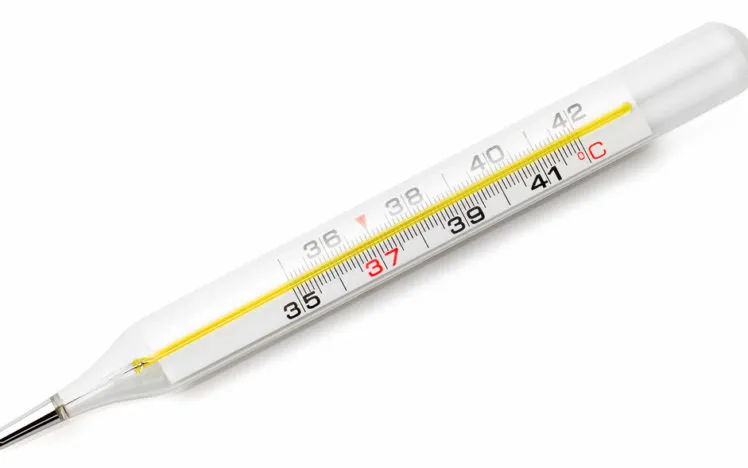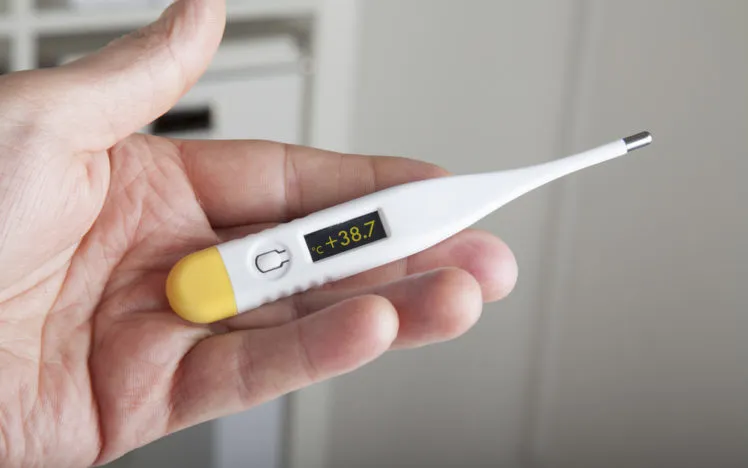Signs You May Have Food Poisoning
If you’ve ever had food poisoning, you’ll know it’s never an enjoyable experience. Food poisoning is an illness caused by eating contaminated food which contain infectious organisms such as bacteria, viruses or parasites. Food poisoning can manifest differently and vary depending on the source of contamination. A few of the common symptoms will begin to appear a few hours eating the contaminated food. Luckily, food poisoning is often mild and resolves itself without treatment. The symptoms, however, can sometimes be confused for the flu or another virus. If you’re suffering with what you believe to be food poisoning, follow along as we outline some common symptoms so you can start helping your body recover as soon as possible.
1. Abdominal Pain
One of the first symptoms of food poisoning that you may be experiencing is abdominal pain, cramping or tightness. The pain can range from mild to severe and is typically felt around the trunk of the body, below your ribs and above the pelvis.
Abdominal pain is a sign that your body is fighting off the harmful germs and bacteria to keep you healthy and as a result, your abdominal pain may be very uncomfortable. To ease your pain, try lying down, napping or drinking some peppermint tea to flush your body of the toxins in the spoiled food you ate.
2. Vomiting
Vomiting is a highly common symptom of food poisoning and probably one of the most miserable symptoms as well. If you keep throwing up and it only lasts about 24 hours, there’s a good chance food poisoning is to blame.
This symptom is actually a protective mechanism that occurs as your body attempts to rid itself of the harmful organisms. The worst thing you can do is to try to stop your body from vomiting. Your body is trying to get rid of all that bad food, but the main time you should be concerned is if you are getting extremely dehydrated as a result.
3. Slight Fever
Food poisoning takes a toll on your overall health and well being of your body, but the good news is that this often only occurs for 24 hours. Aside from the major symptoms of abdominal pain and nausea, one way your body may respond to food poisoning is through a slight fever.
You know you have a fever when your body’s temperature rises higher than the normal range, which is 97.6–99.6°F, or 36–37°C. If you are experiencing more than a slight fever, that’s the time to be concerned. If your fever is fairly mild, don’t worry! Drink lots of water and get some rest.
4. Nausea
Nausea is the worst because you may feel like you want or need to be sick, but your body just won’t do it! It can leave you feeling drained and extremely sick to your stomach. If you’re experiencing nausea, this could certainly be a sign that you may have food poisoning, however nausea can also be a common symptom of migraines, motion sickness or overeating.
Nausea is a warning sign to let your body know that you have ingested something potentially dangerous. To remedy nausea, try drinking ginger tea with lemon. Ginger and lemon can help soothe your nausea and hopefully reduce it.
5. Headaches
Headaches are extremely common and can manifest for a number of different reasons, including food poisoning. Since food poisoning can cause you to become dehydrated and fatigued, it’s common for a headache to form alongside some of the other common symptoms.
These headaches can last for hours and drive you slightly crazy if you don’t do anything about it. Make sure if you feel a headache coming on to stay hydrated and try taking a nap. Your body is going through a lot right now so you need to give it an opportunity to heal itself through rest and water.
6. Loss Of Appetite
Loss of appetite is an obvious symptom when it comes to food poisoning. Who doesn’t love food?! If the idea of food makes you sick to your stomach while you have food poisoning, don’t be surprised. It’s as if your body is saying “Gross! I don’t want more poison!”.
The main thing is to stay hydrated and eat when you can, but eat things that are easy to digest such as saltine crackers. Be sure to listen to your body and what it needs, which may mean to take a break from heavy foods for a while to allow your body to heal.
7. Weakness
Having food poisoning is a draining experience, especially when you have a combination of a variety of symptoms. As a result, your body may feel achy and tired. A general feeling of weakness and fatigue is common during food poisoning, especially considering the trauma your body has gone through in such a short amount of time.
Make a point of listening to what your body needs, and don’t push it! Your body will tell you when it’s ready to start functioning normally again, but it probably won’t be for at least 24 hours. Give yourself time to rest and heal.
8. Diarrhea
Another common symptom of food poisoning is diarrhea, which can be characterized as watery, loose stool. This symptom occurs as a result of inflammation in the body and is likely accompanied with other symptoms of food poisoning such as a sense of urgency to use the bathroom, bloating, abdominal cramps, vomiting and nausea.
Diarrhea also causes you to lose more liquid than normal, so be sure to keep drinking water to stay hydrated. You could also try sipping broth or soup which can help fight dehydration while also giving you some energy if you can’t handle solid foods just yet.
WHEN YOU SHOULD GO TO THE DOCTOR…
9. Diarrhea For 3+ Days
Food poisoning is often mild and resolves itself within 24-48 hours, however if you’re experiencing symptoms past the 72 hour mark, it may be time to visit your doctor.
Diarrhea for a short time is to be expected when it comes to food poisoning, but if you are experiencing diarrhea for an extended amount of time, definitely go see your doctor. If you cannot get in to see your doctor within a couple days, it may be best to head to the Emergency room to get checked out. It’s better to be safe than sorry to ensure there isn’t a bigger issue going on.
10. High Fever
As previously outlined, mild fevers are common when it comes to food poisoning. A fever is a sign that your body is not at it’s best, but if your fever spikes and becomes very high, that’s the time to be concerned. A low grade fever is typically a body temperature between 100.4-102.2°F, or 38-39°C which is common in those suffering with food poisoning,
If you’re experiencing a fever above 102.2°F, or 39°C, degrees, however, it may be a sign of a more serious infection. If you are experiencing a high fever, head to your doctor right away to see how your body is recovering from the food poisoning.
11. Severe Dehydration
A common concern of those who have food poisoning is dehydration. Since your body is ridding itself of the contamination, you may be losing a significant amount of liquid without even releasing. If you don’t have to pee very often, have a dry mouth, a headache and are very sleepy, you may be experiencing serious dehydration.
Be sure to drink water to avoid this becoming severe, but if it already has, it’s recommended that you head to the Emergency room. They will help you get some liquids back in your body so you can fight off the contaminated food and allow your body to properly recover.
12. Blood in Stool or Urine
If you notice blood in your stool or urine while struggling with food poisoning, it’s time to get some immediate attention from a doctor or visit a hospital. This symptom could indicate a medical condition outside of food poisoning.
Monitoring your urine when you have food poisoning is important because it can be an indictor of a bigger issue. If your urine is darker in color or more yellow than usual, this is a common sign of dehydration. If you’re noticing blood, this could be a different issue altogether. Be sure to consult a doctor to find a recommended course of treatment.

Shutterstock/New Africa












